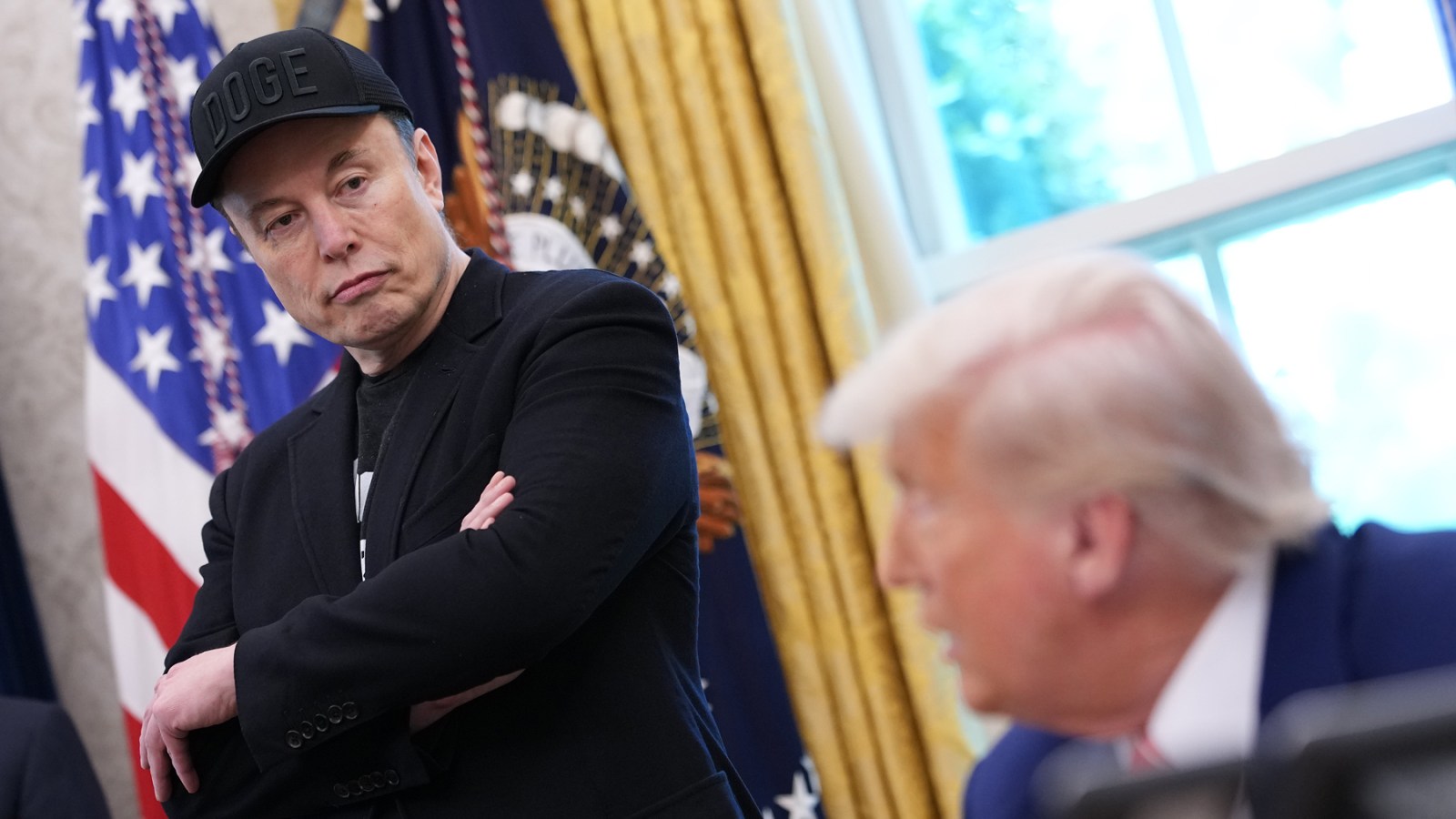Elon Musk’s highly visible involvement in American politics over the past few years — culminating in several months serving as a key adviser to President Donald Trump — have come at a cost for Tesla. Once a brand beloved by the liberal set for its ostensibly eco-conscious electric vehicles, the automaker became a target for organized protests by that same demographic, with many owners trading in their cars and others sporting bumper stickers advertising their disgust with the company’s far-right CEO: “I Bought This Before Elon Went Crazy,” “Anti Elon Tesla Club,” and “Elon Sucks” are just a few of the slogans now familiar across the nation’s highways.
But the financial result of this reputational damage for Tesla as a brand is harder to pin down. The company’s stock nosedived while Musk served as the so-called Department of Government Efficiency (DOGE), a broadly unpopular team tasked with gutting federal agencies, yet it has since climbed back to the peak it reached shortly after Trump’s reelection. Tesla also suffered two consecutive quarters of declining sales before reporting revenue growth in its latest earnings call last month. Considering this, how much of that sluggishness can we chalk up to the public’s distaste for Musk as opposed to, say, increased competition from other EV manufacturers?
That’s what a team of economists at the Yale School of the Environment decided to find out. Their reportreleased this week, arrived at a stark answer: had Musk not transformed into an overtly and aggressively partisan figure, Tesla’s US sales could have been 67 to 83 percent higher between October 2022 and April 2025, equivalent to 1-1.26 million cars.
The authors of the report used county-level data on new vehicle registrations as well as voter affiliation — whether these areas leaned blue or red — to discover that a trend of rising Tesla sales among Democrats was reversed in October 2022, when Musk completed his acquisition of Twitter, now X, ushering in an era of right-wing misinformation and extremism on the platform. But counties with a higher share of Republican voters did not see the same kind of fall-off in Tesla sales. This gap, according to the study, indicates a change in consumer behavior motivated by politics rather than the availability of different EVs or Tesla failing to bring out new products in recent years (apart from the polarizing and poorly selling Cybertruck, that is).
“We would expect that increased competition or the lack of new models should impact Democrats and Republicans the same way, and there’s no reason why these impacts would start diverging after the Twitter purchase,” the paper’s authors wrote. “But they diverged.”
Democrats’ efforts to distance themselves from the automaker were even more pronounced once Musk helped to bankroll Trump’s 2024 presidential campaign and joined his inner circle, regularly appearing at White House press conferences post-inauguration to talk about all the money DOGE was supposedly saving taxpayers. By the first quarter of 2025, the economists found, monthly Tesla sales would have been about 150 percent higher without what they call “the Musk partisan effect.” These losses far outstripped any gains Tesla might have made with Republican buyers as a result of Musk’s MAGA activism, per the report.
In the 2022-2025 period analyzed, the team calculated that US sales of electric and hybrid cars made by Tesla competitors increased by about one million — roughly the number of missing Tesla sales over the same span of time — suggesting that Musk’s unpopularity actually boosted those industry rivals. “In the first quarter of 2025, we find that without the Musk partisan effect, monthly sales of other electric and hybrid vehicles would have been around 25 percent lower, and when aggregated back to October 2022, Musk’s partisan activities increased sales of EV and hybrid competitors by between 17 percent and 22 percent,” they wrote.
All told, the researchers concluded, Musk’s “extracurricular” activities as a political kingmaker and temporary government employee in the Trump administration had a drastic impact on Tesla, antagonizing its core clientele of Democrats inclined toward environmentally-friendly modes of transportation. Not only that, but the authors claimed that his actions have been shown to have ripple effects throughout a market in which he is a very recognizable — and controversial — figure.
Tesla remains valued at more than a trillion dollars, more than any other auto manufacturer on the planet, so it’s not as if the loss of a million sales is a mortal blow. Meanwhile, Musk has repeatedly argued that the true promise of the company lies not in cars but advanced artificial intelligence and humanoid robots; the past quarter saw a 50 percent uptick in operating costs associated with AI and other research and development. For the moment, it still makes its profits from cars, but in both word and deed, Musk behaves as if Tesla hardly needs that business anymore.

اترك تعليقاً